Though it’s been 16 years since he last hosted the BBC’s Film programme{
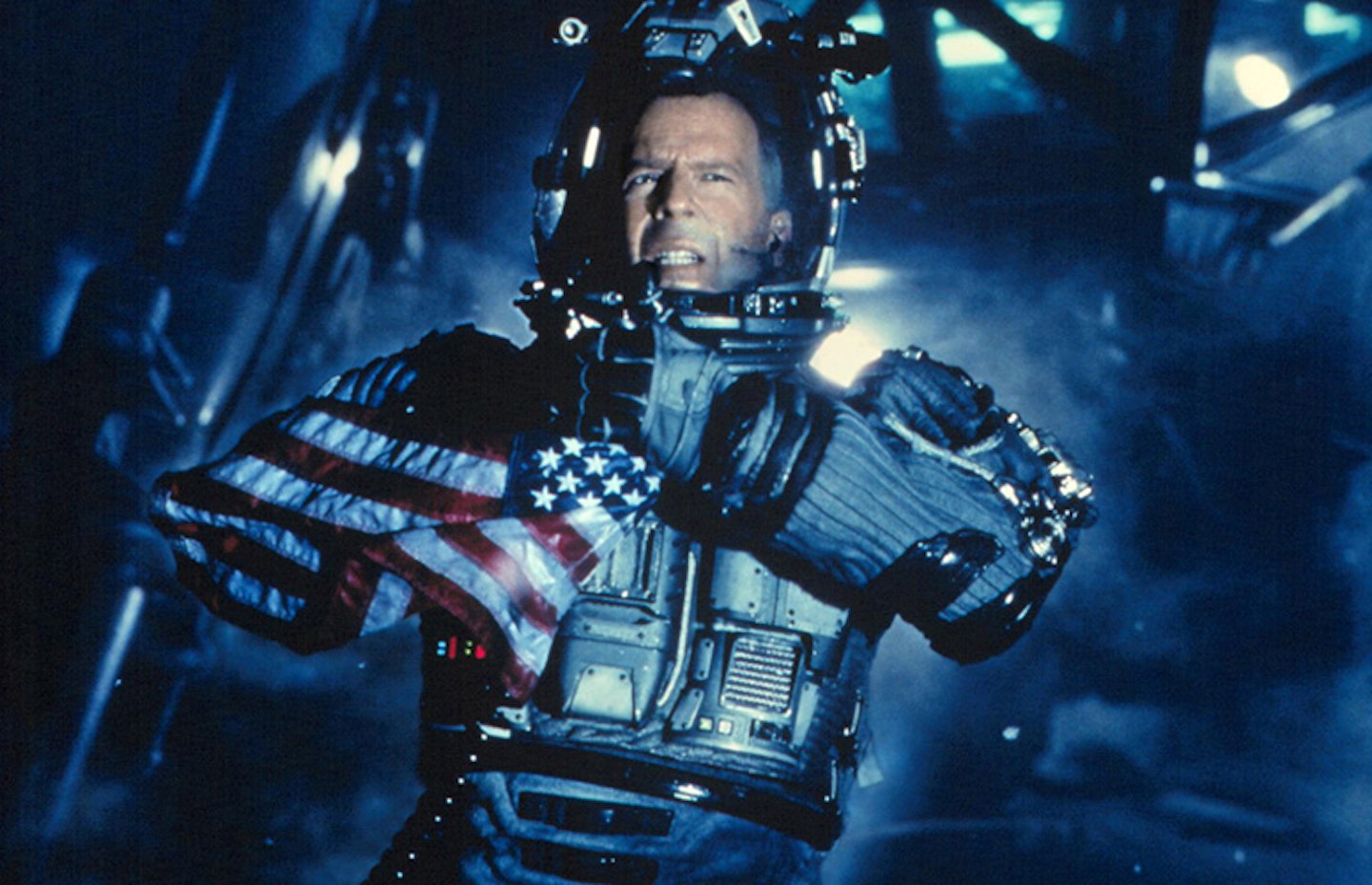

“The next day he was up at the Hôtel du Cap, which is where all the bigwigs stayed – it’s a hotel so grand it doesn’t even take credit cards – and he was up there and he was supposed to be doing interviews with loads of people, and he was cutting interviews down to about two or three minutes, which is just about long enough to say, ‘Hello Bruce, how are you?’ and ‘Goodbye’ and then some he just didn’t do at all. He was supposed to have an hour off for lunch but he was away for about an hour and a half, and I had a date with him in the afternoon. He didn’t cut my time down but he was truculent and sulky. I said, ‘What did you feel about that reaction?’
“‘Oh gee, God – who reads critics?’ And I thought, ‘Well, you probably don’t as I’m not sure you can read.’ Then he said, ‘Nobody cares about critics’ and went on moaning. But if he’d simply said, ‘Look, I was a bit taken aback that everybody laughed, but if you see it in context in the film, you won’t laugh, you’ll be moved.’ If he’d done that, everybody would have been on his side but he didn’t, he just sulks, and, you know… offended a lot of people. They do get delusions of adequacy, these people, don’t they?”
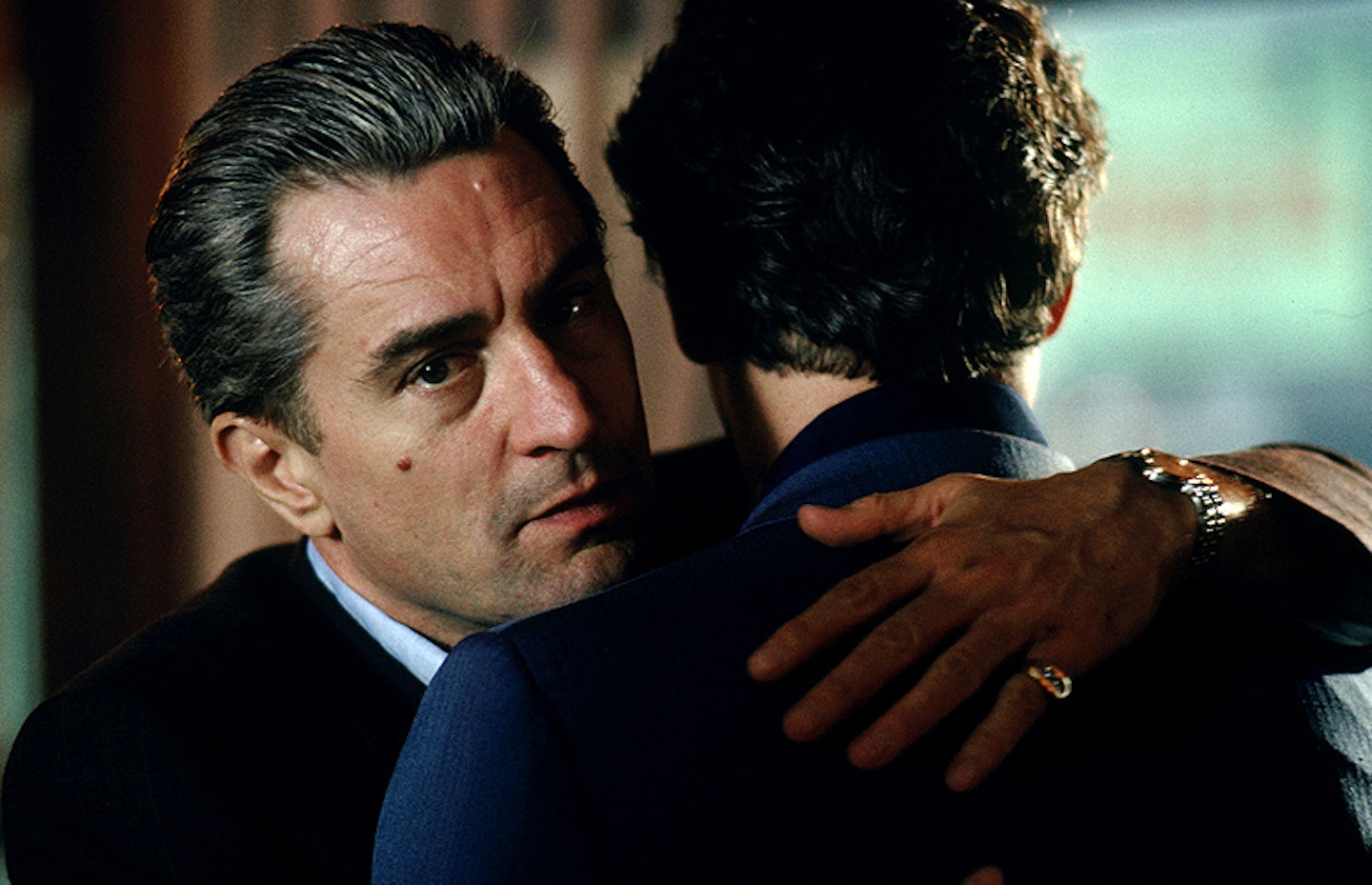

“Well, I was never going to try and punch him. Come on, I may look stupid but I’m not really. He was a lot younger than me and a lot fitter than me. If it had really come to fisticuffs then I’d have been in deep trouble! No, what happened was… Well, everybody I knew who’d tried to interview De Niro said it was a waste of time because he wasn’t interested. He only did interviews because his contract said he must, and so I never even attempted to get an interview with De Niro until Goodfellas came around and a girl from Warner Brothers phoned me up in a state of great excitement and said, ‘De Niro’s in town for one day, he’ll do one television interview, and he’ll do it with you. Are you interested?’
“So I thought, ‘Well, if it’s coming directly from him, then maybe he’s got something to say.’ Anyway, we turned up at the Savoy Hotel and we were in a suite on the second floor and he was on the third floor, immediately above us, and I think he was supposed to met us at 10 o’clock and at 10.30am there was no sign of him, so I said to the girl, ‘Look, what’s happened? Has he got lost on the stairs on the way down?’ And she said, ‘I’ll go and find out’, so she made a phone call and came back and said, ‘He’s waiting for his shirt to come back from the laundry.’ I thought if somebody said to me, ‘How many shirts do you reckon Robert De Niro owns?’, I’d have said, ‘More than one!’ But apparently not...
“When he turned up, it was an awful shirt, a dung-coloured thing – a Hawaiian kind of pattern but in dull colours… I wouldn’t have worn it on a desert island. Anyway, he came in and he gave me a perfunctory handshake and he gave my producer a perfunctory handshake, but he didn’t want to be introduced to the crew. So he sat down and was monosyllabic, as everyone had said he would be. But in the research I’d done before the interview, I’d come across some story that appeared in several American magazines, and this story said that a few years earlier, when they were making Big, De Niro went to the producers and begged them to let him play it and they kicked him out of the office saying, ‘No, we want a big star’ so they got Tom Hanks, who was a star, but not nearly as big as De Niro at that time, and I thought, ‘I don’t believe this story, I really don’t.’
“So about fifteen minutes into the interview, when we were both quite angry, I thought I’ll ask him about this and he thought I was trying to stir up trouble. I wasn’t, I genuinely wanted to know what his version of the story was, and I managed eventually to drag it out of him, and his version was that the producers had actually asked him to play the part, and he agreed, but then they got together to discuss, no doubt, where and when and probably how much money De Niro wanted, and that’s when they fell out. De Niro walked away and this story started spreading.
“Now it seemed to me that De Niro’s version was the only one that actually made sense, and I’d have thought he would have been quite glad to have that in the public domain… but apparently not, because at the end of the interview I said, with no goodwill at all, ‘Well, thank you very much’ and reached out my hand to shake his and he ignored me and said, ‘You had to get that one in, didn’t you?’ I said, ‘What are you talking about?’ He said, ‘You know what I’m talking about’ and he swept out. So I swept out after him and I said, ‘What’s your bloody problem?’ and he said, ‘You know what my problem is’ and suddenly we’re nose to nose, snarling at each other. It was very childish. He was angry and so was I, because he’d wasted my time, and there was a moment there when I thought he might hang one on me. I was not looking forward to that moment.”
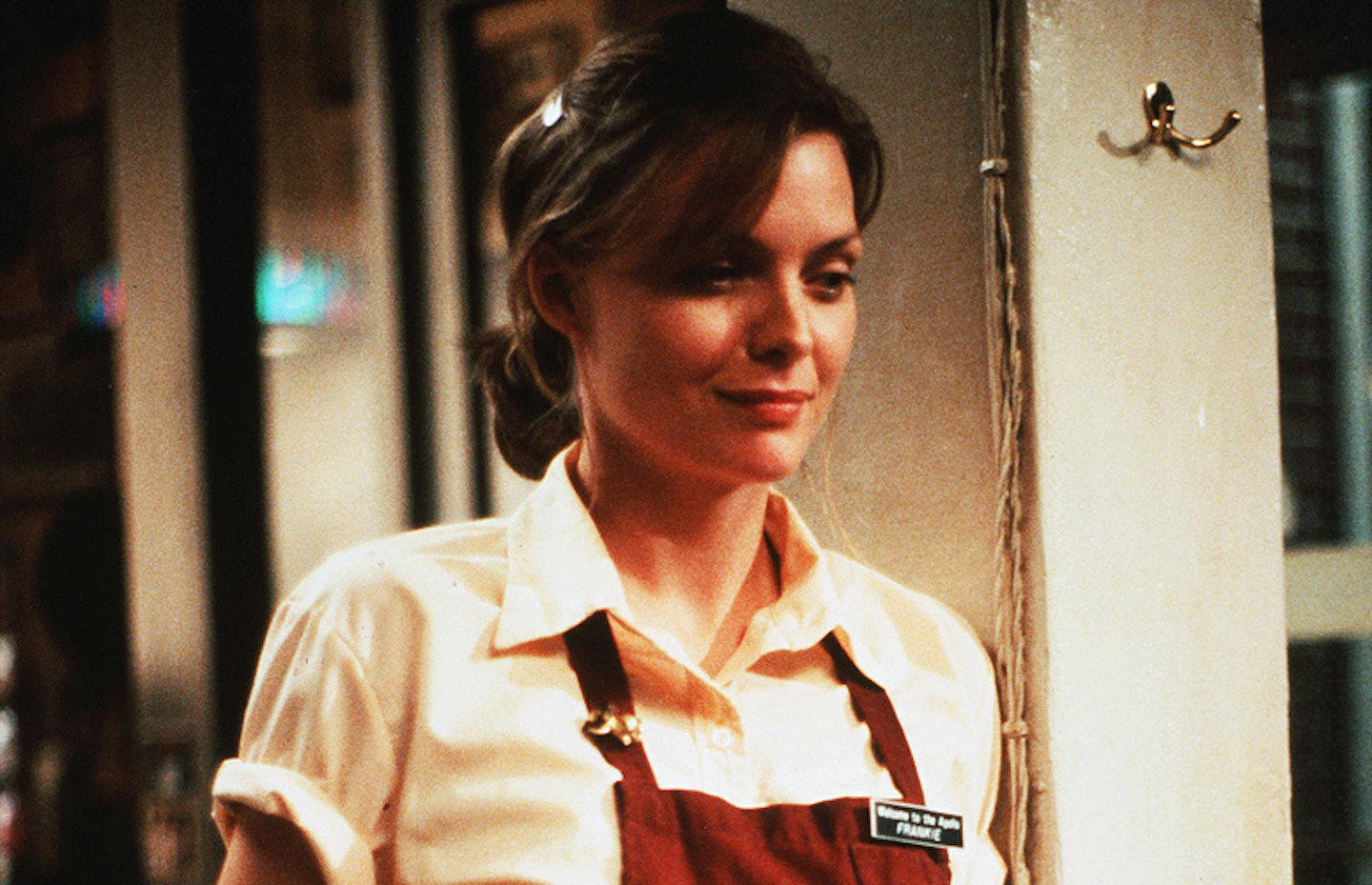

“No, I don’t have a crush on Michelle Pfeiffer. I did an interview with her once about Frankie And Johnny, which had come out a year earlier in America and for some reason or other it was delayed getting here, and she’d done lots of things since then, so when we were doing the interview she wasn’t really interested in talking about Frankie And Johnny very much, and it wasn’t going anywhere until I said, ‘You have once said that you thought you look like a duck.’ She said, ‘Yes.’ I said, ‘Well, all I can say is that if all ducks look like you, the courts would be full of men up on bestiality charges.'
“After that, it became quite a flirtatious chat because she was very pleased, so the rumour went around that I was madly in love with Michelle Pfeiffer. I wasn’t. I liked her a great deal and I think she was certainly one of the most beautiful women on the screen. She’s absolutely gorgeous. The other lovely thing about that was that when you do those interviews in hotel suites, there’s only one camera, behind the interviewer, so you’ve got to sit quite close together… and I have to tell you that sitting for an hour or so with your legs brushing up against Michelle Pfeiffer’s is not a bad way to earn a living. (Laughs)”
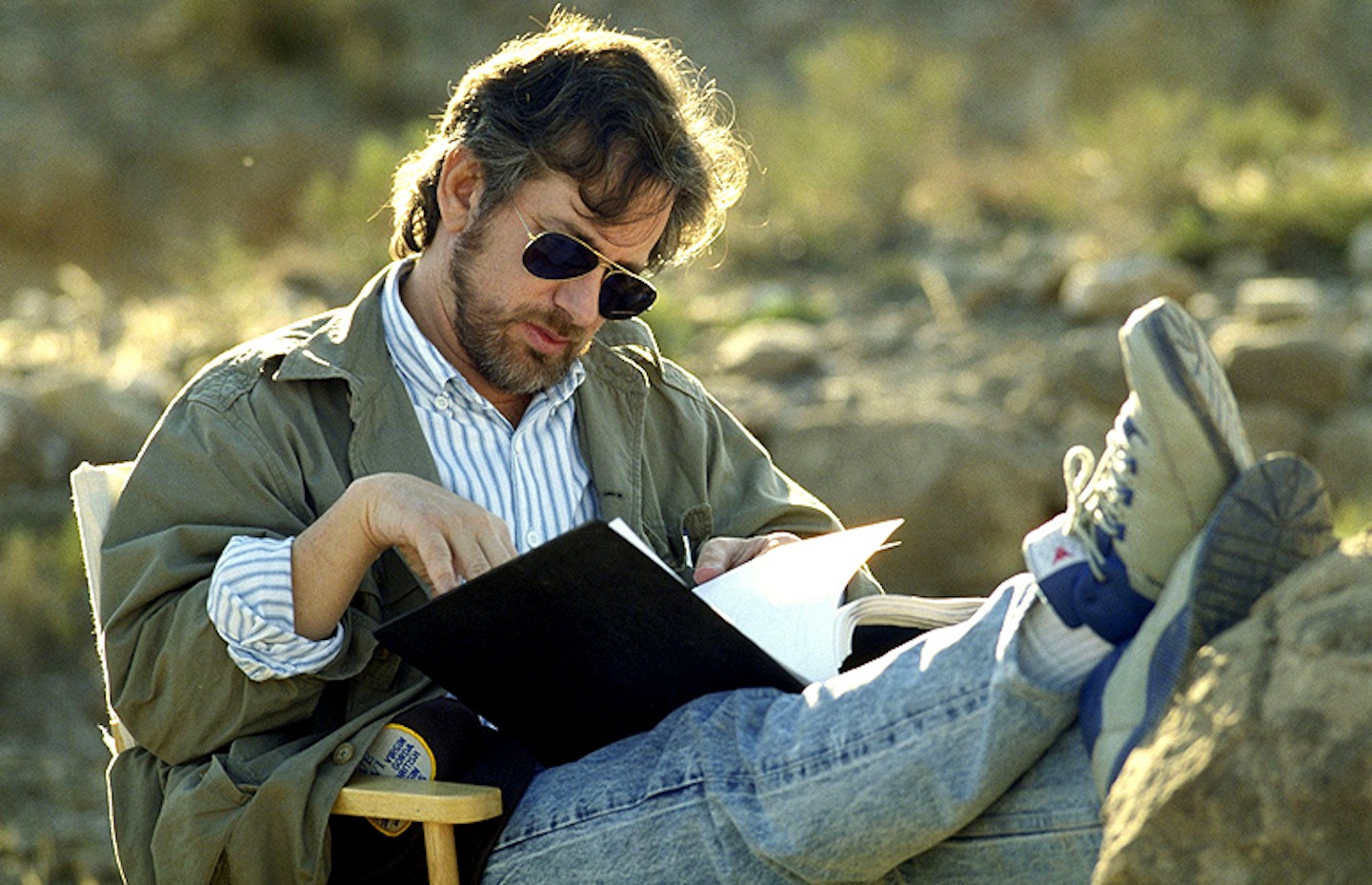

“I have a lot of time for Steven. He’s a really, really nice guy. He always used to call me ‘The 64 Million Dollar Man’. I asked him why and he said, ‘Well, we always seem to meet when I’ve made a movie that’s just got 64 million dollars.’ I said, ‘That’s true. Why does none of that money ever rub off on me?’ He said, ‘You’re at the wrong end of the business’ – and he was right!”
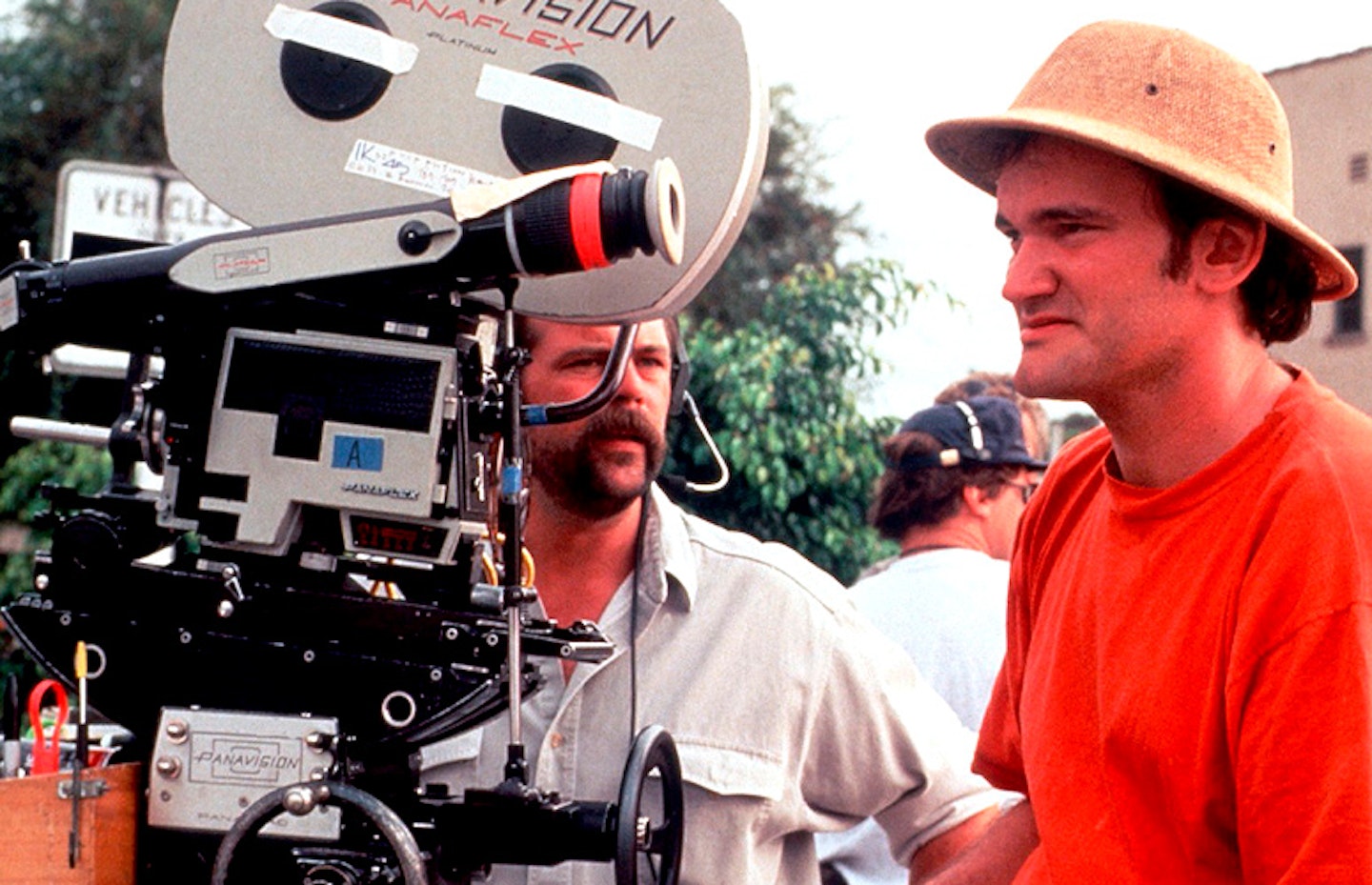

“I really do get on well with Quentin. I thought Reservoir Dogs was a terrific movie, and I don’t know if you remember, but there was an awful lot of hoo-hah about it and the violence and ‘that dreadful scene where you see the ear cut off’, which you don’t actually see… the dreadfulness is in your mind, it’s not what Quentin’s showing on screen.
“And anyway, the first time I met him was when he came to Cannes with Pulp Fiction and I was doing the interview with him on a beach somewhere. By the time I got there Quentin has already arrived. Quentin said, ‘Hey, I know who you are. You were the first man to urge people to go and see Reservoir Dogs.’ Well, I probably wasn’t the first man but I wasn’t going to disabuse him!
“So we got along extremely well from that point on. What I like about Quentin’s films is his dialogue, the way he writes, which is why the two films I didn’t like so much were the Kill Bill films because they were very good of their kind but they weren’t really Tarantino movies. There wasn’t that marvellously sharp, witty, funny dialogue the other films have.”
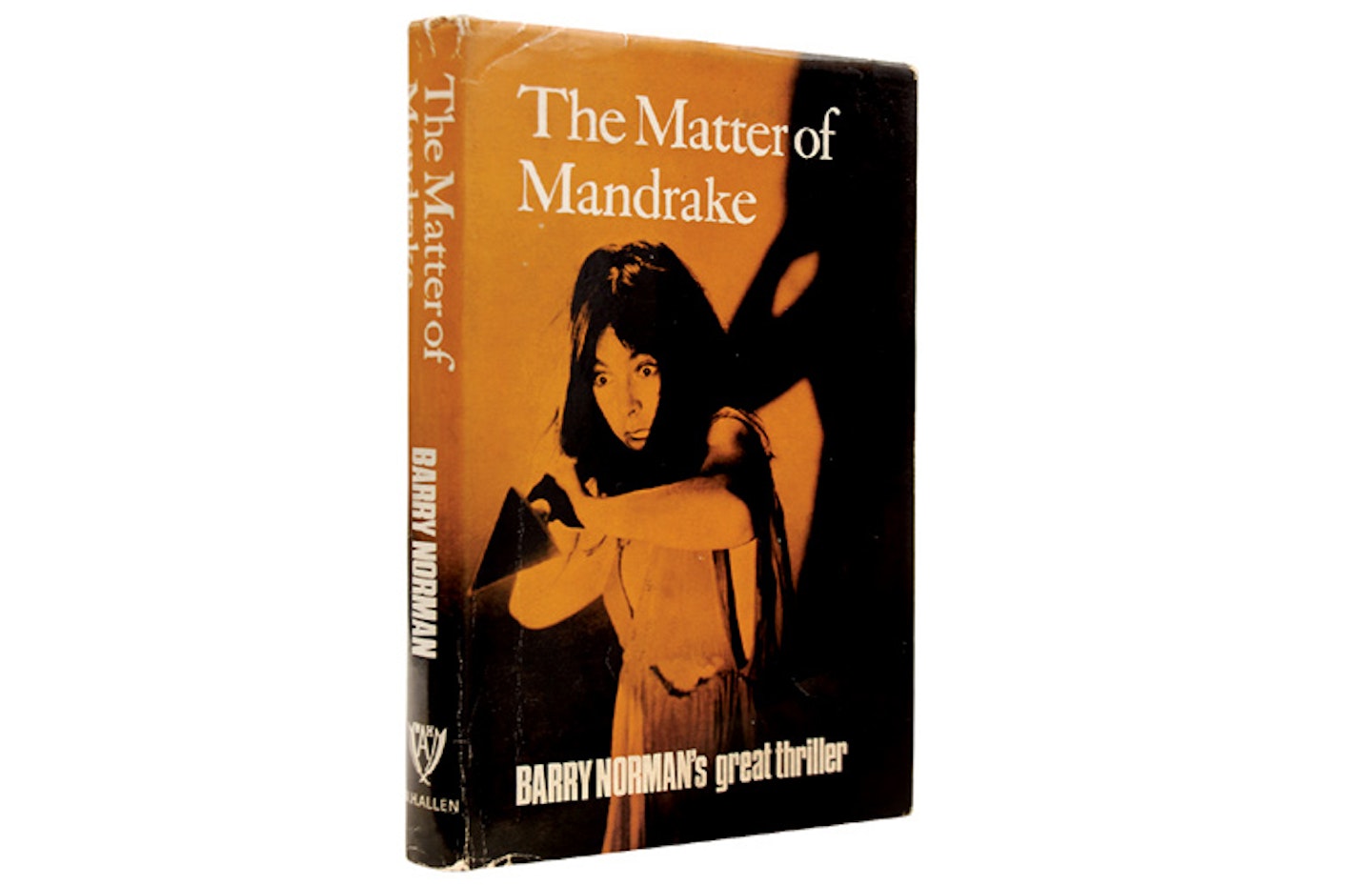

“I’ve had options taken on a couple of books. I think most authors this has happened to think, ‘Oh gosh, I’m going to be rich and famous’ but it never actually happens. In fact, the very first book I wrote was a thriller called The Matter Of Mandrake, with a hero who was halfway between Len Deighton’s nameless hero and James Bond. My dad at that time was directing episodes of The Saint, with Roger Moore, and God bless him, he took this big, bulky manuscript and he gave it to Roger and said, ‘Look, I think there’s a movie here, and a part for you.’ Roger, God bless him too, took it to Monte Carlo on holiday with him, and read this bloody thing and came back and said, ‘Yeah, let’s go.’
“So Dad was going to direct, Roger was going to star, I was going to write the first draft of the screenplay, and they’d obviously put it out to a professional afterwards, and all was set until (ITV head honcho) Lew Grade, sod him, came back from New York with a contract for Roger to do about another 57 episodes of The Saint. So by the time he was free of that, he chose, instead of doing my hero, he chose to play James Bond, which I think was a seriously bad career move, frankly. (Laughs)"
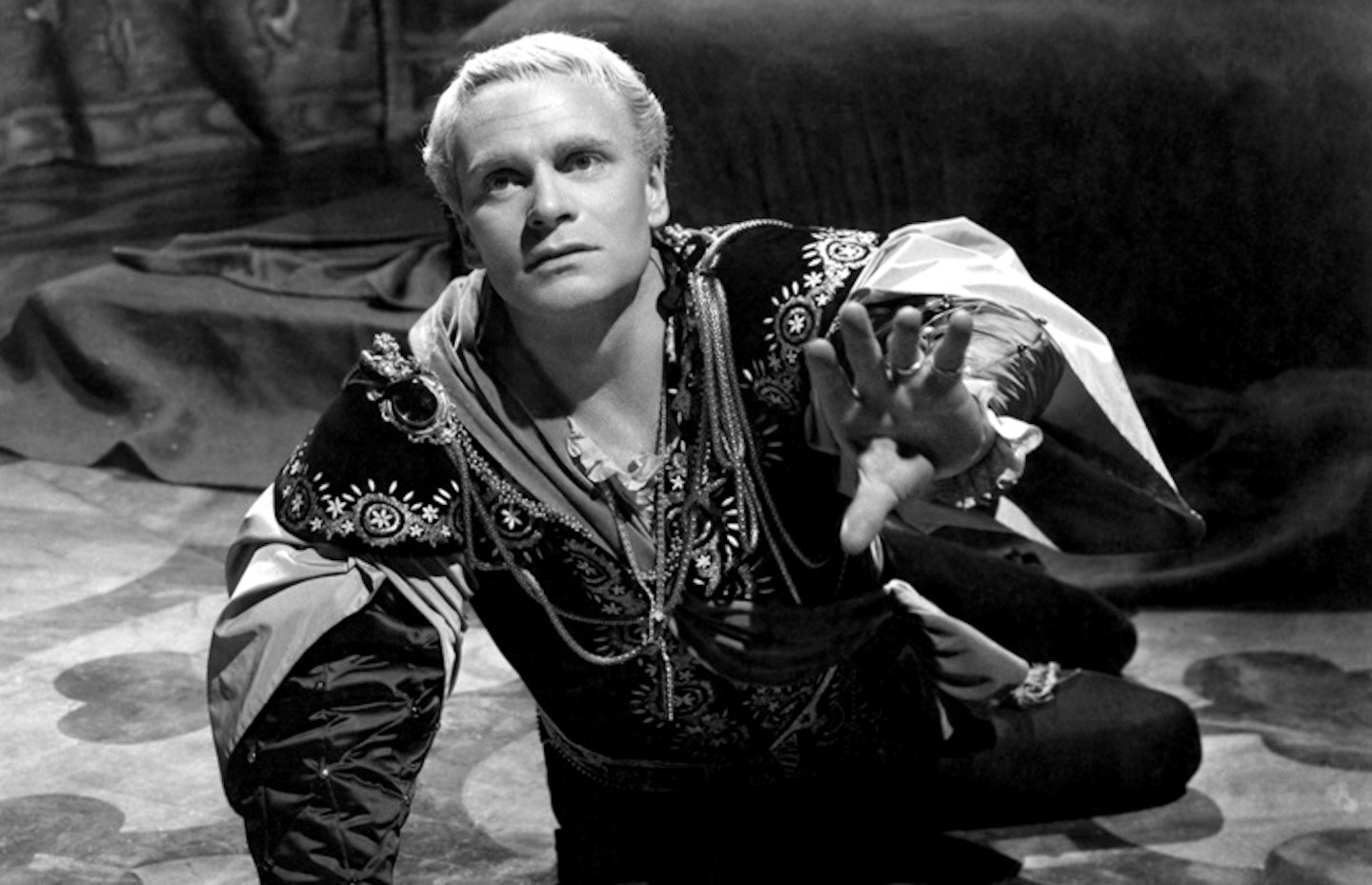

“I was brought up in a film household because my father, Lesley Norman, produced The Cruel Sea and directed Dunkirk and various other films, so there were always actors coming in and out of my house. I learned very early on that they’re probably prettier than the rest of us, but they’re very much working stiffs like we all are, with the same kind of problems.
"They talked to my dad about whether they had enough money to pay their income tax or whether their wife was having an affair or whether their career was on the way up or the way down, and they had all the same worries as everybody else. So I then realised early on that there was no point in being awestricken by somebody who made a living by pretending to be somebody else. The closest I came to being starstruck was by Laurence Olivier, but that was largely because of what he did in the theatre rather than the cinema.”
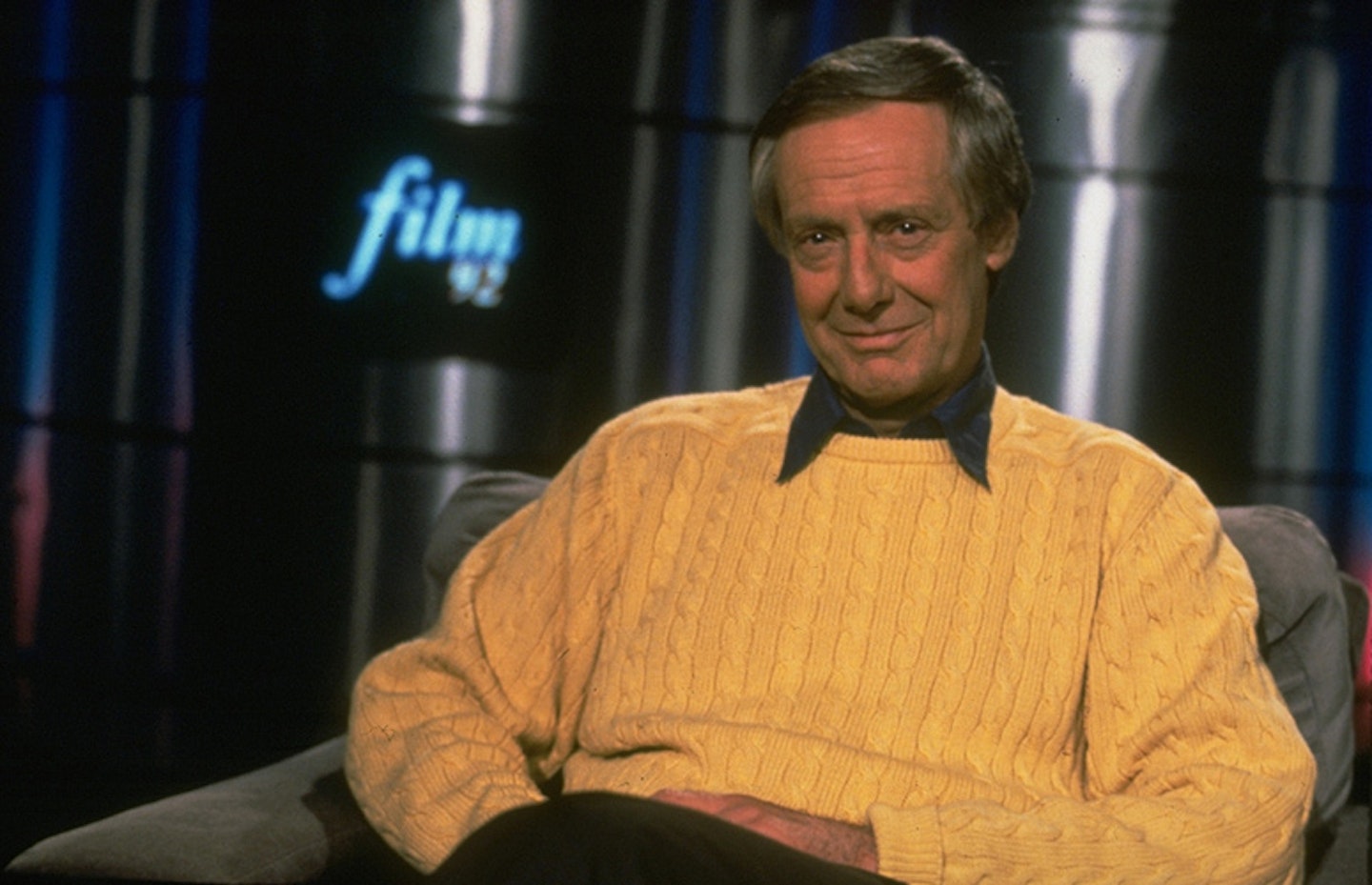

“It’s odd, isn’t it? Everyone thinks I wore a jumper the whole time and I didn’t. There was only one year when I wore jumpers and then after that I went back to jackets and blazers and suits and things.
“About a hundred years ago when I was known as the thinking girl’s crumpet – impossible to believe now, but it was true at the time – and one day, through the post came this pair of clean knickers. I didn’t take them home. I thought my wife wouldn’t appreciate it.”

“A lot of people think that ‘And why not?’ came from Spitting Image, but it didn’t, it came from a separate show that Rory [Bremner] did on Channel 4. I remember that vividly because I hadn’t watched the show – no doubt, I’d been watching a movie at the time – and the day after I was walking through an area of Soho on my way to another film screening and there were three guys leaning on a car, and as I went by, one of them said, ‘And why not?’ and they all fell about. I thought, ‘God, I wonder what they’re on?’
"I got to the cinema – it was one of those lovely evening shows where they give you sandwiches and a glass of wine – so I was talking to a friend, drinking my wine, and there was a little fat man across the room and he was bobbing up and down and had gone quite red. He suddenly walked up in front of me, still bobbing up and down and red, and said, ‘And why not?’ I said, ‘What?’ He said, ‘And why not?’ I said, ‘Look, I heard what you said, but why are you saying it?’ He said, ‘It’s what you always say’ and I said, ‘It isn’t, I never say that – and I never have!’
“At that time I had a book out and I was being interviewed quite a lot on radio and television programmes about it, and every interviewer said, ‘Now this catchphrase of yours, when did you first…?’ and I said, ‘It’s not my catchphrase, I’ve never said it!’ I went around moaning for a long time until finally I got a note from Rory saying, ‘Write your own bloody catchphrase in future!’ So I thought, 'It’s better to have a catchphrase, even if you don’t use it, than not.'”